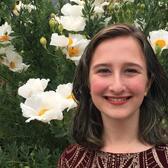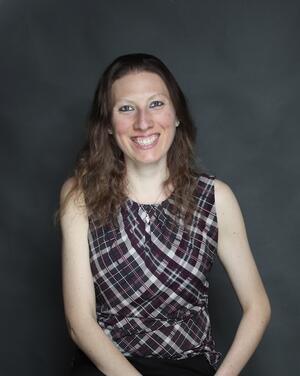Q & A with Aliza Shatzman, founder of the Legal Accountability Project
Unlike millions of other American workers, federal judiciary employees lack basic civil rights protections against dismissal, even as future career moves often require successful completion of the clerkship and a positive reference from the judge they are paired with.
Aliza Shatzman founded the Legal Accountability Project to address these issues. In this interview, she talks about how Judaism has shaped her experiences and commitment to fighting injustice; the role of hiring transparency in a post-October 7 legal field; and her vision for the future of the judiciary.
This interview has been lightly edited for clarity.
JWA: Can you tell our readers a bit about your nonprofit, the Legal Accountability Project, and what inspired you to found it?
Aliza Shatzman: The Legal Accountability Project launched two years ago, and is intended to ensure that judicial law clerks—new attorneys who work for judges—have positive clerkship experiences, while extending support and resources to those who do not. This is because I was one of those who did not. I served as a law clerk during the 2019 to 2020 term in the Superior Court of the District of Columbia. During that time, I was harassed, fired, and then retaliated against by a now-former judge. After my clerkship, I had started working at my dream job in the US Attorney's Office when that judge gave me a retaliatory negative reference and my security clearance was revoked. So I filed a judicial complaint, hired attorneys, and participated in a misconduct investigation.
During that time, I discovered that [federal] law clerks are exempt from Title VII of the Civil Rights Act. So folks like me cannot sue and seek damages. I began speaking with congressional offices about it and about pending legislation called the Judiciary Accountability Act, which would extend Title VII to the Federal Judiciary. I provided congressional testimony in support of that legislation in March 2022, and I launched the nonprofit pretty soon after, as a vector for my advocacy work.
Our work aims to increase transparency, accountability, and diversity, equity, inclusion, and access in judicial clerkships and the judiciary. The hallmark of our work is the creation of a first-of-its-kind centralized clerkship database to democratize judicial clerkship information. It's been compared to Yelp or Glassdoor for judges, serving as a transparency tool by which law clerks can review their powerful bosses.
Because of the enormous power disparity between judge and clerk and the lack of Title VII protections, law clerks are really dissuaded from speaking out and standing up for themselves. Filing complaints and sharing negative clerkship experiences has historically not happened in complete or effective ways, and instead information has been spread through what's been referred to as the “clerkships whisper network.” The Legal Accountability Project seeks to correct that. We provide an anonymous, verified, third-party resource where clerks can review judges, and then prospective clerks—law students or new attorneys—can read these thousands of reviews in order to find a good match and avoid an abusive judge.
We launched the platform in April 2024 and have already onboarded over a thousand law students and young lawyers as users. We also have over 1,100 reviews about over 850 federal and state court judges, making us the largest independent repository of clerkship information in the US. In that way, we're raising the bar on workplace civility and encouraging every single judge to look inward and do better as a manager and as a mentor.
JWA: As you mention, the Legal Accountability Project focuses on the alues of empowerment, transparency, accountability, and diversity, equity, and inclusion. How has Judaism shaped your centering of those values?
AS: It's a combination of Judaism and my family. When I think back on my relationship with my parents and with my grandmother, a Holocaust survivor who passed away in the last few years, they all have a really strong sense of moral clarity. I've always had a very strong sense of justice, of right and wrong, and a really strong sense of moral outrage that comes from the way I was raised. I think that's the most important thing I took from my Jewish heritage and from my upbringing. I feel very strongly about the values I hold, and it's not hard for me to make ethical decisions—you shouldn’t mistreat people, and if you do, you should be held accountable.
JWA: There’s been a lot of tumult on law school campuses following the events of October 7, including protested speakers, removals of law review publications, and thirteen federal judges’ public boycotting of hiring Columbia University alumni due what they saw as the university's mishandling of student protests. You've highlighted how this post-October 7 polarization has brought to the fore the arbitrary nature of hirings and firings in clerkship positions. Do you foresee this kind of politically-charged and even just arbitrary hiring and firing process continuing, or do you think this will change?
AS: We certainly advocate for it to change. Judges have always relied on their personal proclivities in their clerkship hiring, which I am very opposed to. I don't like the idea that judges are basically hiring people they want to hang out with for a year or two. There have been a couple of boycotts of different law schools by judges, which I think are political stunts. The Columbia clerks boycott is one of the ones that I have spoken about a lot and have been very critical of. People have reacted strongly to the boycott and several bar associations and ethics watchdog groups have called for an internal investigation, alleging that it might be a violation of judicial canons to be that blatantly discriminatory in hiring.
But, of course, as we've already talked about, discrimination is not a word that really applies to the federal judiciary, because they're exempt from Title VII and the anti-discrimination laws. It's not that clerkship hiring will ever be a straight-up meritocracy, but it could be much better. And it should be. Judges, as I mentioned, have hidden behind the opacity and the secrecy of their hiring for a really long time. And I hope more people will take a hard look at how judges are making decisions about who they hire. It's important, because in the legal profession, a clerkship is a launchpad to future career success. It might be your most important legal job. And so the fact that judges or don't hire certain groups is going to have implications for judges and diversity in the legal profession.
JWA: You've testified before the House of Representatives about those very consequences. But without concrete legal recourse, how have you coped with the injustices you faced? And what advice would you have for others who may be having similar experiences?
AS: The justice system in general is very unjust. It's particularly ironic when we talk about the judiciary interpreting and enforcing the laws, and yet they are above the laws they enforce. They are not subject to anti-discrimination laws. The judiciary would say that they have internal processes, but those don't work.
I share my experience a lot, and it is the foundational aspect of my work. My personal experience is what galvanizes me, and for the first year or more of my advocacy work, sharing my experience felt important for me. I now spend a lot of time speaking with mistreated clerks. I definitely don't speak with every single clerk who reaches out, because I can't. I find it hard when some are just not going to take any accountability steps and they're not going to report. So this work and sharing my experience are healing.
The most important advice I can give anybody facing an experience like mine or experiencing mistreatment in any workplace is to report. Hands down, without question. I know that there are a lot of headwinds against reporting, but if you don't, the person who harassed you and abused you will harass others, perpetuating cycles of abuse. The only way to stop that is to share your experience. Of course, there are people who need to get out of the abusive work environment before they feel safe reporting, but there is no question that that is really the only way we'll change the culture.
When I was mistreated, there was never a doubt in my mind that I would report or that I would share my experience. Of course, there are various mechanisms that need to be implemented to make it safer for people to report. It's harder when law clerks are not protected under Title VII. It's harder when the judiciary seems not to care about implementing even any informal protection against judges retaliating against clerks.
JWA: In the face of all these systems and people who are resistant to change, how do you unwind and refresh?
AS: I work out every day. I'm always on the elliptical in my basement, checking my email and working. I take at least one head-clearing walk every day, sometimes two. I'm an aspiring dog-owner, but for now I visit my parents’ dog a lot. So those are some of the things I do. But I really am always thinking about work. It's definitely a 24/7 job.
JWA: You've accomplished a lot in the time that you've been with the LAP. What advice would you have for your younger self? What advice would you have for other young women who are looking to pursue a legal career?
AS: Advice for my younger self might have been to think a little bit harder about why I wanted to go to law school. At first, I wanted to be a reproductive rights litigator and then I wanted to be a homicide prosecutor, but once I could no longer work as a federal prosecutor, which happened very early in my legal career [as a result of the judicial retaliation experienced after my clerkship], I realized there wasn't any other type of law I wanted to practice. Knowing this, I may have gotten an MBA instead of going to law school. I might have taken more than three years before going to law school. [Having said that], I think I am where I was meant to be, even though it was a very hard road that got me here, and I was ready when the opportunity presented itself to take the leap.
Similarly, the advice I usually give to other people is, if you have a good idea and you identify an unmet need, you should take a leap to pursue it. Even if that means quitting your job to start your business or nonprofit. You have to have some savings and you have to be able to work without a salary for a year. But many, many people told me, “You can't do it. It's never going to happen. Law schools, the judiciary—they're never going to change.” But we’re changing both. So I really am evidence that one person can make a difference and can make change.







